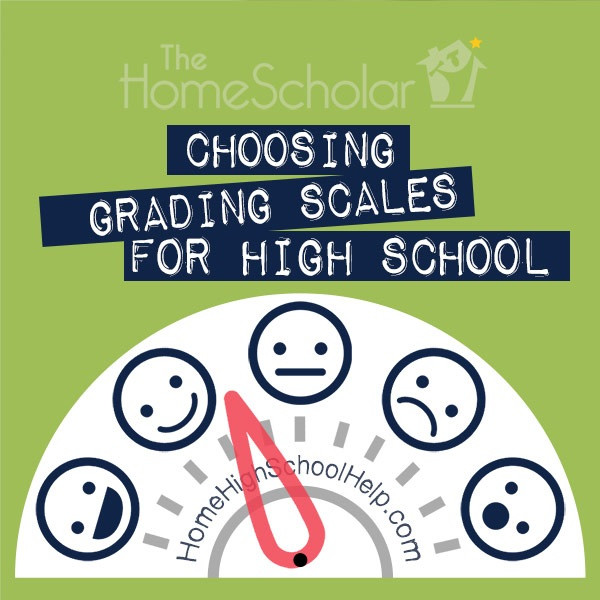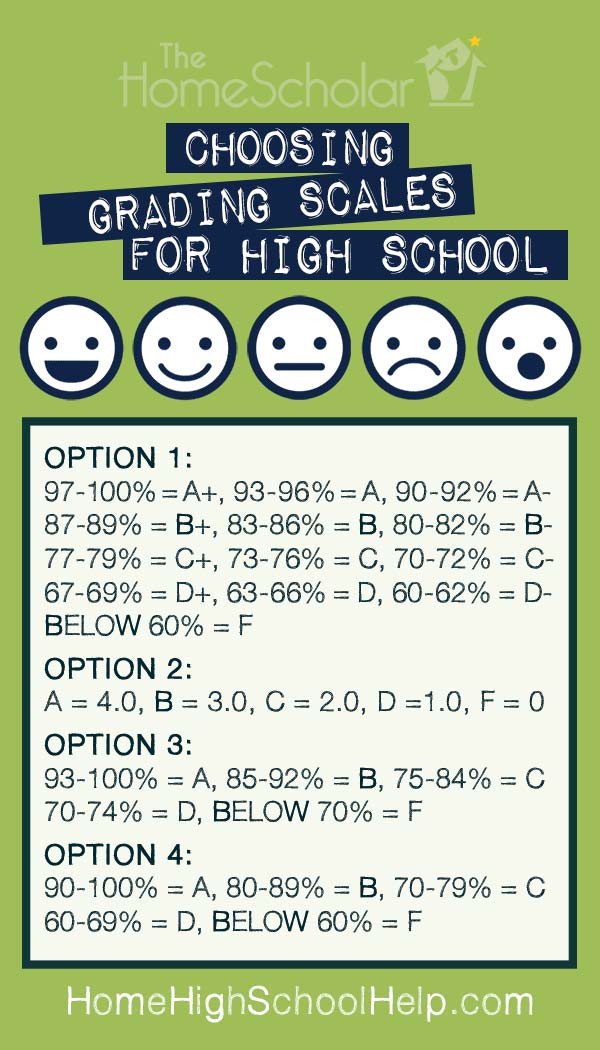How to Choose a Homeschool Grading Scale
When you choose to homeschool, there are, what seems like, mountains of things to choose to set up your homeschool. Not the least of which, is a homeschool grading scale. The grading scale can seem difficult when you first think about it, but with the tips that follow, I'll have you feeling more confident in no time.
While your student is in high school, you'll need to make a transcript. (I'm sure you knew that already, but you can find help here if you need it!) This transcript is made up of all of the grades and credits you've collected over the four years of high school. Shockingly, you don't even have to get all of the grades from tests! I didn't. My sons still thought my grades were, in their words "bogus", but that's a topic for another time. What they did (assignments) , what they know (discussion), what they did with their knowledge (wrote papers, created a project, gave a speech). Focus on learning, not correcting papers.
Each year your student takes in high school, you'll keep track of the class, the grade they earned, and how many credits that class was worth. In case you don't know, you calculate class credits by hours. Generally speaking, 120-180 hours spent equals one full class credit. Half that equals one half credit, which is usually considered a semester class. You can also estimate this by figuring that one credit class means that your child has spent 5 hours a week for the entire year. Or, you can also estimate a full credit it if you have finished an entire textbook.
If you need to see a sample of a transcript to get a better picture of what I'm describing, you can find one here.
Now you know that you need the grades and credits for a transcript, but what do those numbers mean? How can you determine where your child lands on the homeschool grading scale?
Here's a quick grading estimate that will allow you to know whether your child has obtained mastery.
Grade of A or 4.0
- Mastery, meets high expectations
- High standardized test scores
- They love the subject
- Parent is not annoyed
Grade of B or 3.0
- Pretty good, not worth an A
- Parent is somewhat annoyed
Grade of C or 2.0
- Not very good, parent is annoyed and disappointed
- Kept going to the next level
Anything below a C should be done over. As homeschoolers, we have the luxury to teach to mastery. There really is no reason (Other than, possibly, a natural consequences teaching moment, to give a D or an F as a homeschooler - this would have to be an extreme case to be used in this way.)
So, what's the big deal about choosing a grading scale? Well, I'm glad you asked!
In order to evaluate your child, you must have a standard to work from. This standard can look differently for different homeschool families. You will choose one that fits your family best, not necessarily what your homeschool friend is doing.
You can use any grading scale you are comfortable with, truly! Here are a few standard scales to choose from, but every public, private, and homeschool teacher gets to choose their own.
Option 1 - Somewhat Complicated:
97-100% = A+ 93-96% = A, 90-92% = A-, 87-89% = B+, 83-86% = B, 80-82% = B-,77-79% = C+, 73-76% = C, 70-72% = C-, 67-69% = D+, 63-66% = D, 60-62% = D-, Below 60% = F
Option 2 - Simple:
A = 4.0, B = 3.0, C = 2.0, D = 1.0, F = 0
Option 3 -Still not quite right for me:
93-100% = A, 85-92% = B, 75-84% = C, 70-74% = D, Below 70% = F
Option 4 - The one I used, somewhere in between:
90-100% = A, 80-89% = B, 70-79% = C, 60-69% = D, Below 60% = F
If you can't decide, just print this page and post it on your wall. Throw a dart at the page. The grading scale closest to the dart is the lucky winner! That grading scale is obviously the homeschool grading scale that you're supposed to use, right? *wink (For homes without darts, I have heard that throwing al dente spaghetti noodles will also do the trick!)
All joking aside, it really doesn't matter which scale you choose. Choose the one that is easiest for you and makes the most sense for your family.
If you'd like to continue reading about creating homeschool grades, check out my book Making the Grade: A Grouch-Free Guide to Homeschool Grading. Christa found the book very helpful!

 Login
Login











.jpg)

Comments 2
I love the "Parent is not annoyed" on the evaluation criteria.
That is my favorite part, Peggy!
Robin
Assistant to The HomeScholar